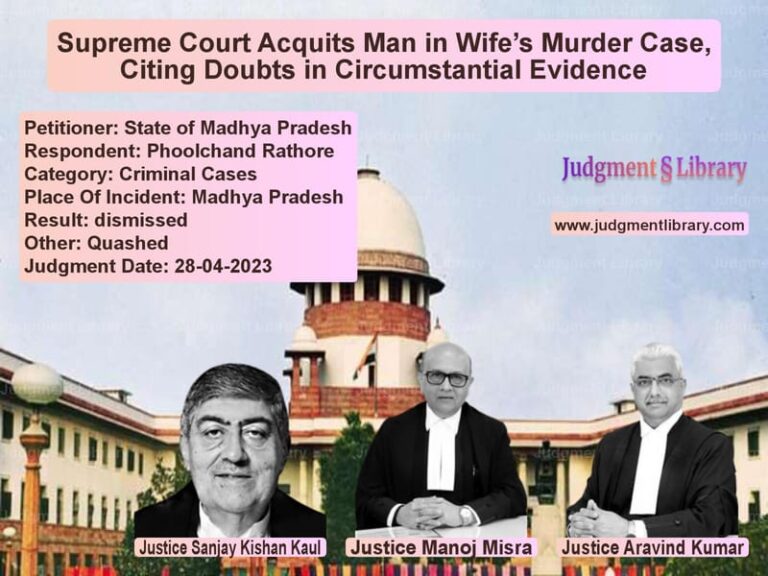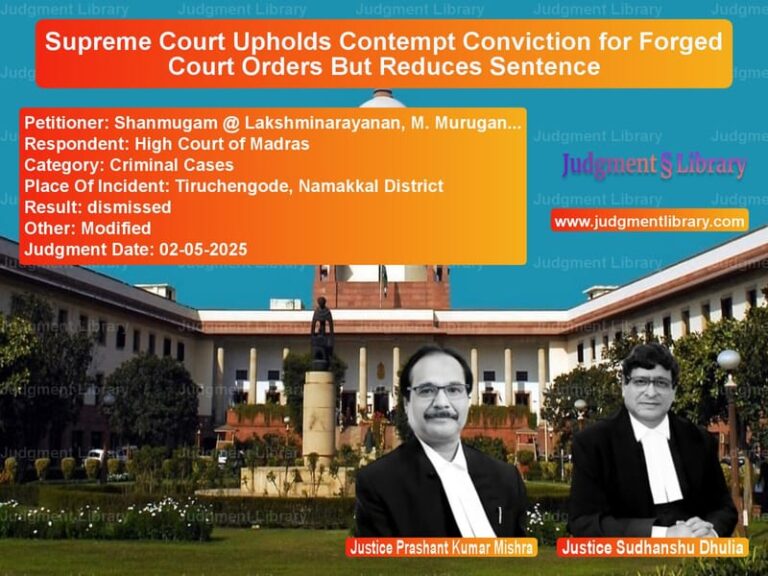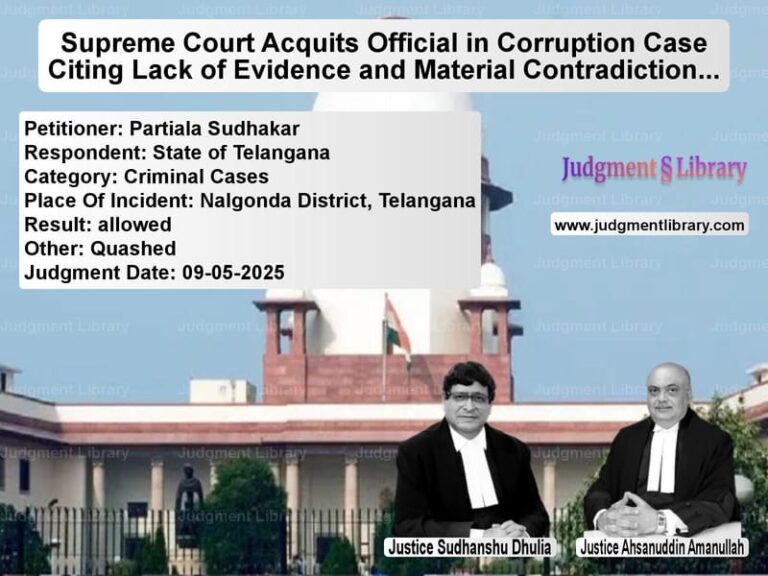Supreme Court Dismisses Contempt Petition Against Bar Council of India
The case of Ajayinder Sangwan & Ors. vs. K.K. Mohan revolves around a contempt petition filed against the Bar Council of India (BCI), alleging willful disobedience of Supreme Court orders related to the State Bar Council elections. The Supreme Court of India, in its judgment dated February 5, 2018, dismissed the contempt petition, ruling that no case had been made out for contempt proceedings.
This judgment clarifies the role of the judiciary in monitoring compliance with election schedules for professional bodies and reinforces the principle that contempt proceedings require clear evidence of intentional non-compliance.
Background of the Case
The contempt petition was filed by Ajayinder Sangwan and Others, claiming that the BCI had failed to comply with the Supreme Court’s orders dated December 14, 2017, August 23, 2017, and November 24, 2017. These orders were issued in relation to Transferred Case (Civil) No. 126 of 2015, which concerned the conduct and regulation of elections for various State Bar Councils across India.
The petitioners alleged that the BCI had delayed the election process despite clear directions from the Court. The case was heard by a bench comprising Justice R.K. Agrawal and Justice Abhay Manohar Sapre.
Key Legal Issues
- Whether the Bar Council of India willfully disobeyed the Supreme Court’s orders regarding the conduct of State Bar Council elections.
- Whether the contempt petition met the legal threshold required for initiating contempt proceedings.
- Whether the election schedule finalized by the BCI was in compliance with the Supreme Court’s directives.
Petitioner’s Arguments (Ajayinder Sangwan & Others)
The petitioners contended that:
“The Bar Council of India has failed to conduct the elections as per the timeline mandated by this Court, thereby violating the orders issued on December 14, 2017, August 23, 2017, and November 24, 2017.”
They further argued:
- The delay in holding elections had affected the functioning of State Bar Councils, impacting the legal profession.
- The BCI’s failure to adhere to the Supreme Court’s directives amounted to willful disobedience, warranting contempt proceedings.
Respondent’s Arguments (Bar Council of India)
The BCI, in its defense, submitted:
“The election schedule for the respective State Bar Councils has been finalized and is just and proper. There is no deliberate or willful violation of the Supreme Court’s orders.”
The BCI further argued:
- The delay, if any, was procedural and not intentional.
- The election schedule was formulated in compliance with the Supreme Court’s directives.
- There was no ground for initiating contempt proceedings as the orders had not been violated.
Supreme Court’s Decision
After considering the submissions, the Supreme Court ruled:
“In view of the above, we are of the considered opinion that no case has been made out to initiate contempt proceedings against the BCI. The contempt petition is hereby dismissed.”
The key takeaways from the judgment include:
- The Court found that the BCI had finalized the election schedule and had not acted in a manner that warranted contempt proceedings.
- Contempt proceedings require clear and willful disobedience of court orders, which was not established in this case.
- The decision reinforced that regulatory bodies such as the BCI must ensure timely compliance with judicial directives, but minor procedural delays do not necessarily amount to contempt.
Implications of the Judgment
The ruling has significant implications:
- Clarifies Scope of Contempt: The judgment reinforces that contempt proceedings require clear evidence of willful disobedience.
- Ensures Compliance with Election Procedures: The case emphasizes the need for regulatory bodies to adhere to judicial orders regarding governance and elections.
- Judicial Oversight on Professional Bodies: The decision establishes that while courts can oversee the functioning of legal bodies, contempt actions must be supported by strong evidence.
Conclusion
The Supreme Court’s ruling in Ajayinder Sangwan & Ors. vs. K.K. Mohan provides clarity on the application of contempt law in cases involving regulatory bodies like the BCI. By dismissing the petition, the Court has underscored that contempt is not a tool for enforcing compliance unless there is clear proof of deliberate defiance.
The case serves as a reminder that while court orders must be followed diligently, minor procedural delays or administrative challenges do not necessarily warrant contempt proceedings.
Petitioner Name: Ajayinder Sangwan & Ors.Respondent Name: K.K. MohanJudgment By: Justice R.K. Agrawal, Justice Abhay Manohar SapreJudgment Date: 04-02-2018
Don’t miss out on the full details! Download the complete judgment in PDF format below and gain valuable insights instantly!
Download Judgment: Ajayinder Sangwan & vs K.K. Mohan Supreme Court of India Judgment Dated 04-02-2018.pdf
Direct Downlaod Judgment: Direct downlaod this Judgment
See all petitions in Fundamental Rights
See all petitions in Public Interest Litigation
See all petitions in Separation of Powers
See all petitions in Judgment by R K Agrawal
See all petitions in Judgment by Abhay Manohar Sapre
See all petitions in dismissed
See all petitions in supreme court of India judgments February 2018
See all petitions in 2018 judgments
See all posts in Constitutional Cases Category
See all allowed petitions in Constitutional Cases Category
See all Dismissed petitions in Constitutional Cases Category
See all partially allowed petitions in Constitutional Cases Category







